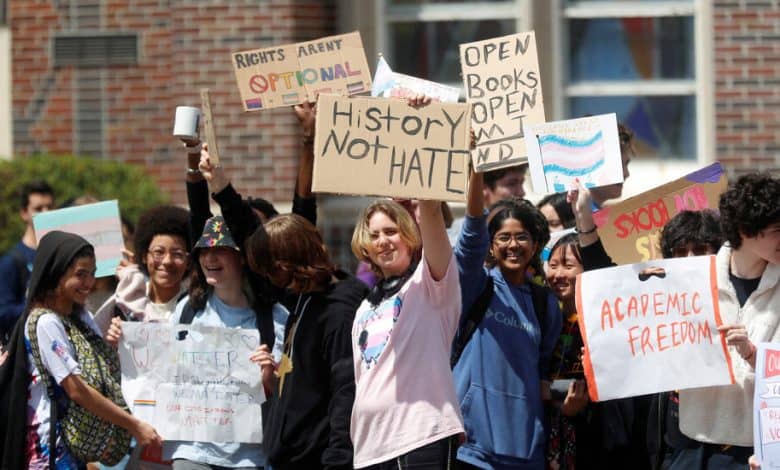Legal Settlement Clarifies Reach of Florida’s ‘Don’t Say Gay’ Law

The State of Florida and plaintiffs who challenged a parental rights law that critics nicknamed “Don’t Say Gay” agreed to a settlement on Monday that clarifies the reach of the legislation, which prohibits instruction on sexual orientation and gender identity in kindergarten through eighth grade.
The plaintiffs, a group that included students, parents, educators and L.G.B.T.Q. advocacy organizations, had blamed the law, signed by Gov. Ron DeSantis in 2022, for causing confusion and fear in public schools. The settlement says that students and teachers are allowed to talk about sexual identity and gender orientation in public schools, as long as it is not part of formal classroom instruction.
The plaintiffs claimed victory, saying it would put an end to discrimination that resulted from ambiguities in the law, officially called the Parental Rights in Education Act.
The administration of Mr. DeSantis, a Republican, also portrayed the settlement as a major win, saying it confirmed that critics had willfully misinterpreted the law as applying more broadly than it actually did.
Opponents had argued that the law’s vague language scared students into thinking they could not create art depicting same-sex parents, teachers into thinking they could not display a photograph of a same-sex partner, and schools into thinking they could no longer allow gay-themed books or student organizations that support gay students.
Roberta Kaplan, the lead lawyer for the plaintiffs, said in a statement that the settlement “safeguards against hate and bullying.” She added: “Simply put, the State of Florida has now made it clear that L.G.B.T.Q.+ kids, parents and teachers in Florida can, in fact, say that they are gay.”